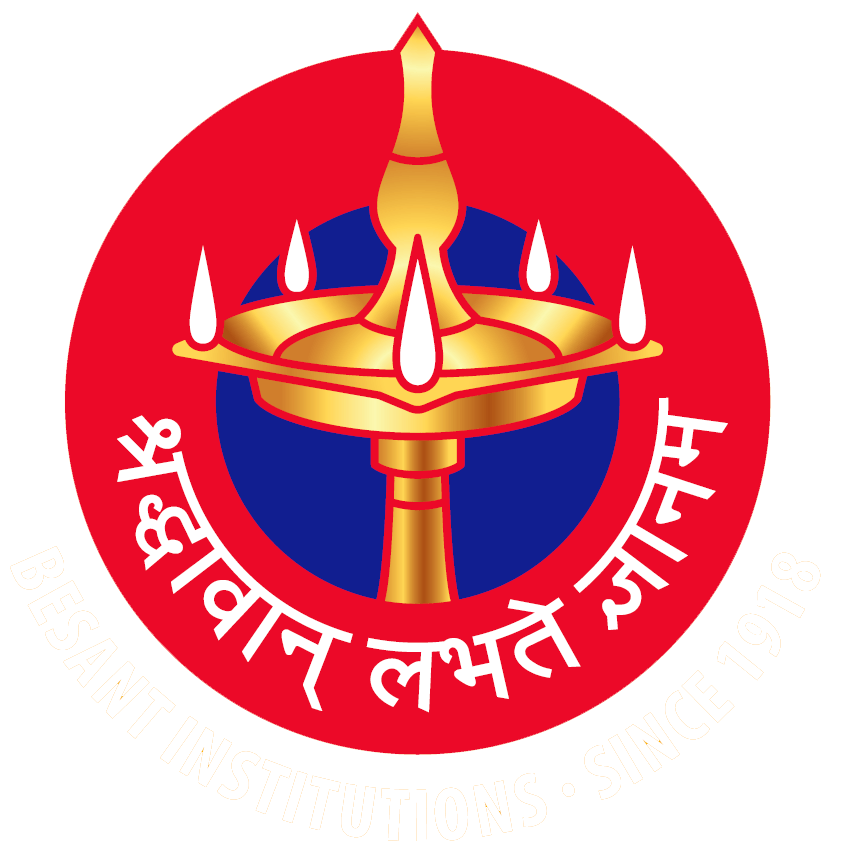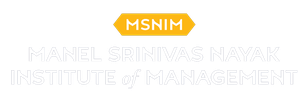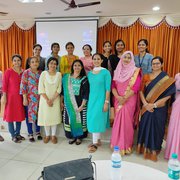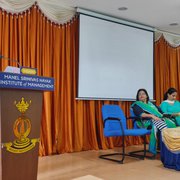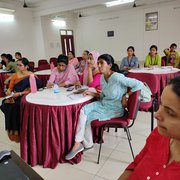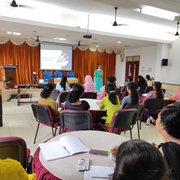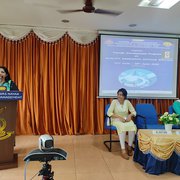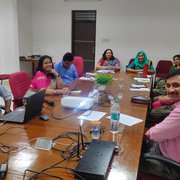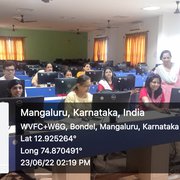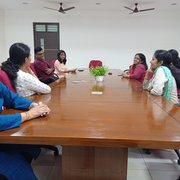Faculty Development Programme on Quality Research Article Writing
Event Name: 5-Days Faculty Development Programme on Quality Research Article Writing
Date: 21.06.2022 – 25.06.2022
Workshop for Scholars specializing in any area of HR, marketing, finance and social sciences are eligible to participate in the workshop. Scholars pursuing Ph.D./M.Phil. programs, who are at the stage of drafting research design and data analysis. Faculty members engaged in funded research projects and wishing to master statistical techniques.
Program Schedule:
Day 1 (June 21, 2022) - Both online & offline modes - Introduction to social science research, formulating and planning the research, writing and presenting a literature review, formulating a survey instrument and navigating online resources
Resource-person - Dr. Ankitha Shetty, Assistant Professor - Senior Scale, Department of Commerce, MAHE, Manipal
Day 2 (June 22, 2022) - Online mode only - Analyzing qualitative research literature, reviewing articles and formulating research questions.
Resource-person - Dr. Mukesh H.V., Assistant Professor - Senior Scale, Department of Commerce, MAHE, Manipal
Day 3 (June 23, 2022) - Online mode only - Bibliometric analysis, interpretation of results
Resource-person - Ms. Jyothi Shetty, Assistant Professor, Department of Commerce, MAHE, Manipal
Ms. Urmila M.S., Assistant Professor, Department of Commerce, MAHE, Manipal
Day 4 (June 24, 2022) - Online mode only - Quantitative data analysis part I using SPSS – descriptive statistics, correlation and multiple regression, cluster analysis and discriminant analysis
Resource-person - Dr. Venkatamuni Reddy, Professor, Department of Commerce, MAHE, Manipal
Day 5 (June 25, 2022) - Online mode only - Quantitative data analysis part II using Structural Equation Modeling - Partial Least Squares (PLS)
Resource-person - Dr. Mathew Thomas Gill, Assistant Professor - Senior Scale, Department of Commerce, MAHE, Manipal
Words of Dr. Ankitha Shetty
She has focused on the barriers of research and how to overcome them effectively, the different entities supporting research and providing grants. She has emphasized on the novelty of choosing a research topic that can help in publishing the research with Scopus indexed journals. She has posited her views on predatory journals and ways to avoid falling for such journals. “Referring to Scopus database journals can be an effective way of choosing quality journals for publishing research articles,” said the researcher.
Dr. Mukesh H.V.
As researchers who often work with qualitative data, we are frequently asked to review qualitative papers and to speak about how to conduct qualitative research. Through these experiences, we believe that there are prevalent misconceptions about the range of roles that qualitative data can play in research on strategic organization. Most frequently, an assumption is made that qualitative data should only be used in areas of nascent theory. Less frequently but equally problematically, an assumption is made that qualitative data should only be used when researchers are employing an interpretive perspective. We argue that these assumptions about the roles of qualitative data are excessively narrow and have led to several unfortunate consequences. For example, many authors justify their use of qualitative data by arguing that there is a lack of prior theory in their domain of interest – even when this is not the case and when they may be using qualitative data for other, entirely legitimate reasons. Hence, Dr. Mukesh emphasized on the use of various types of qualitative data analysis while exploring new areas of research.
Ms. Jyothi and Ms. Urmila
They explained the bibliometric analysis using R-studio software, which is an open-source software. They have demonstrated the procedures to carry out the different types of bibliometric analysis and the interpretation of different graphs, the ways to map a country with author, the ways to find out the areas in which authors from different countries have collaborated for research. These ways are beneficial for delving into new areas of research.
Dr. Venkatamuni Reddy
Dr. Reddy has explained about the significance levels, confidence levels, left-tailed, t-test, right – tailed t-test, descriptive statistics, inferential statistics. He demonstrated about JASP software.
Dr. Mathew Thomas Gill
Dr. Thomas has discussed about Partial Least Squares – Structural Equation Modeling using SmartPLS 3.0 software. He has demonstrated the process using a sample dataset. He has also explained about the different types of options available in SmartPLS and how to use them effectively. He has also demonstrated about analysis using other softwares like JASP and Jamovi.
Participants: 11 Faculties of 5 colleges from in and around Mangalore participated.
Functionaries:
Welcome Address: Dr. Molly S. Chaudhuri, Director, Manel Srinivas Nayak Institute of Management.
FDP Co-ordinator: Dr. Shilpi Saha, Assistant Professor, Manel Srinivas Nayak Institute of Management.
Briefing about FDP – Dr. Shilpi Saha, Assistant Professor, Manel Srinivas Nayak Institute of Management.
Vote of Thanks: Dr. Molly S. Chaudhuri, Director, Manel Srinivas Nayak Institute of Management & Dr. Shilpi Saha, Assistant Professor, Manel Srinivas Nayak Institute of Management.
List of Participants
- Grace Mary Jose - St.Aloysius College (Autonomous), Mangaluru
- ANN VARGHESE - St.Aloysius College (Autonomous), Mangaluru
- K RAKSHA SHENOY - MAHATMA GANDHI MEMORIAL COLLEGE UDUPI
- Dr Shareena P - YIASCM, Yenepoya (Deemed to be University)
- Swapna Shetty J - A J Institute of Management
- Immaculate Mary - Kvg college of engineering sullia
- Sheethal Nayak K - A.J. Institute of Management
- Vaishnavi M N - AJ Institute of Management, Mangalore
- Priya Jyothi Sequeira - Alva's Institute of Engineering & Technology, Mijar
- Arathi K - A J Institute of Management
- Deeksha S Shetty - NITK, Surathkal
